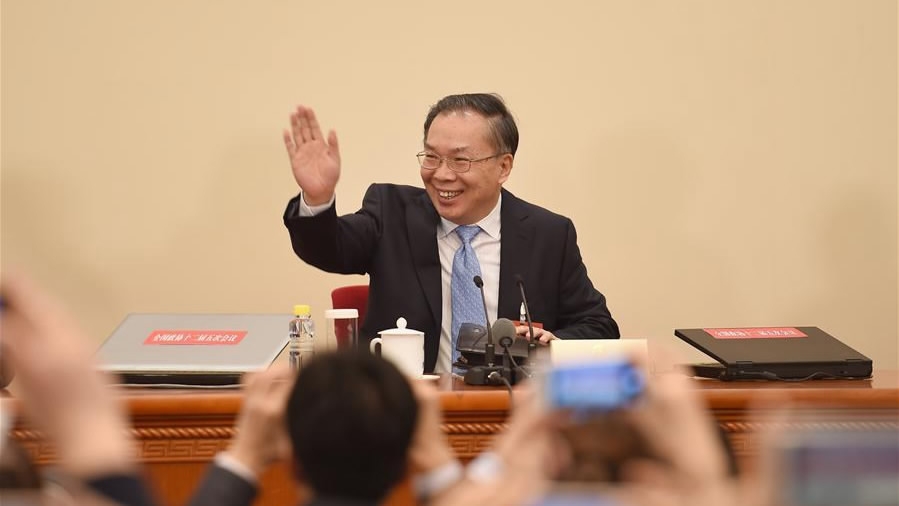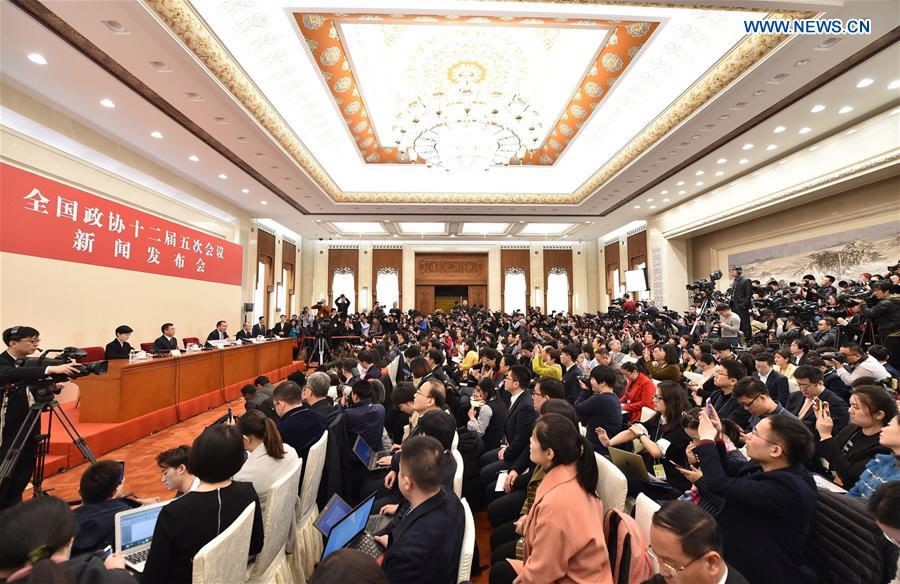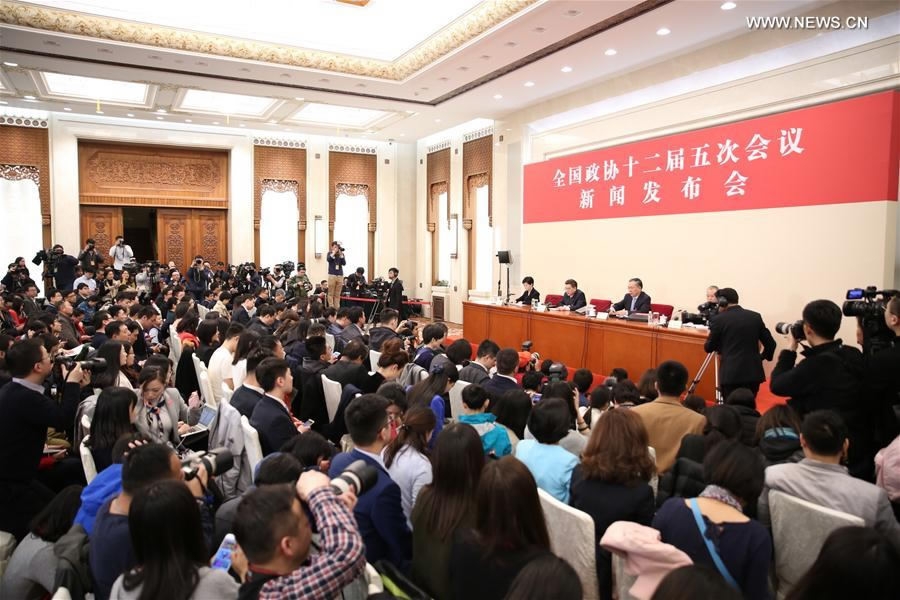
Politics
17:56, 02-Mar-2017
The Two Sessions: The CPPCC’s performance gets better with time
Updated
10:56, 28-Jun-2018

Guest commentary by Gu Jianjun
The press conference of the Fifth Plenary Session of the 12th Chinese People's Political Consultative Conference (CPPCC) National Committee was held in the Press Hall of the Great Hall of the People on Thursday. The press spokesman Wang Guoqing introduced relevant information about the conference and responded to reporters' questions.
The annual Two Sessions is a significant event of our political life. The CPPCC National Committee holds one of the Two Sessions, a grand meeting attended by members of the Communist Party of China (CPC), state leaders, parties and organizations, and people from all sectors of society to discuss state affairs.

Press conference for the fifth session of the 12th Chinese People's Political Consultative Conference National Committee is held at the Great Hall of the People in Beijing, March 2, 2017. /Xinhua Photo
Press conference for the fifth session of the 12th Chinese People's Political Consultative Conference National Committee is held at the Great Hall of the People in Beijing, March 2, 2017. /Xinhua Photo
Wang said 2016 is an important year on the the historical journey to the great rejuvenation of the Chinese nation. The CPPCC focused on presenting policy suggestions and recommendations for the implementation of the 13th “Five-Year Plan”. Fruitful results of political consultation have been achieved and the effects of democratic supervision enhanced. All the above has contributed to a good start of the 13th “Five-Year Plan”. It is most notable that the practical situation and actual effects of presenting proposals are being more strongly emphasized.
The democratic parties and groups which participate in the CPPCC, and its members, put forward proposals to the CPPCC National Committee or its standing committee. Then the Committee for Handling Proposals presents written comments and suggestions given by related institutions after investigation and review. It shows how the CPPCC works.
The CPPCC work in the past was viewed as formalistic, especially for the conferences and presentation of proposals. Proposals lacked quality, sometimes lagged behind circumstances and even failed halfway. But now the situation is getting better.

Press conference for the fifth session of the 12th Chinese People's Political Consultative Conference National Committee is held at the Great Hall of the People in Beijing, March 2, 2017. /Xinhua Photo
Press conference for the fifth session of the 12th Chinese People's Political Consultative Conference National Committee is held at the Great Hall of the People in Beijing, March 2, 2017. /Xinhua Photo
Since the 18th National Congress of the Communist Party of China, the CPC Central Committee and the State Council have attached great importance to the presentation of proposals by letting the CPPCC handle functions related to these presentations. In 2016, the CPPCC submitted 5769 proposals, of which 4279 were filed, 1159 were transferred to “suggestions and advice”, 230 were combined and 101 were withdrawn.
For certain economic issues of concern to the public, the Poverty Relief Office of the State Council of China, the Chinese Ministry of Commerce and other departments have adopted a five-year plan for e-commerce and guidance on promoting poverty relief through e-commerce. The Chinese Ministry of Transport also has drawn up guidelines for managing taxi-hailing app services.
By February 20, 2017, 99.84 percent proposals had been addressed, among which 17.17 percent were settled or adopted, 67.13 percent were to be settled or adopted and 15.7 percent were regarded as reference.
The presentation of proposals are put into practice, which shows that the CPPCC fulfills its responsibilities and plays a more important role in society by giving play to political consultation, democratic supervision and political participation. The CPPCC and the NPC, with the Two Sessions, are like two wings of the giant ship China, driving it to ride waves and head for a new tomorrow.
(Gu Jianjun holds a post-doctorate and works at the Central Compilation and Translation Bureau. The article reflects the author's opinion, not necessarily the view of CGTN.)
35km

SITEMAP
Copyright © 2018 CGTN. Beijing ICP prepared NO.16065310-3
Copyright © 2018 CGTN. Beijing ICP prepared NO.16065310-3